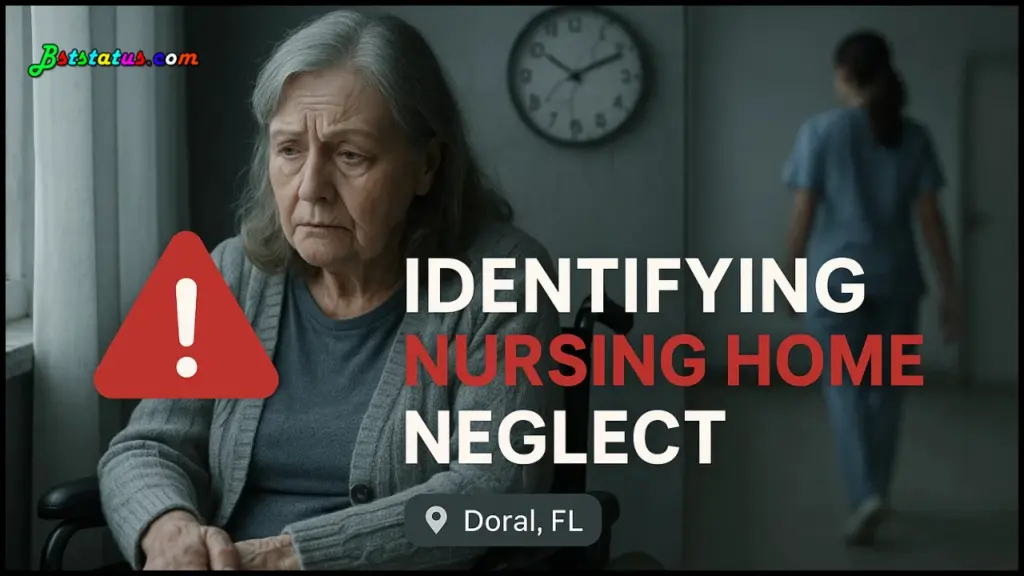Identifying signs of neglect in Doral nursing homes is crucial for ensuring the safety and well-being of residents. You may notice physical signs such as unexplained bruises or infections. Emotional indicators, like sudden mood swings or withdrawal, can also signal neglect. Malnutrition and dehydration are common warning signs. Regular visits and open conversations with your loved ones are essential for spotting these issues. It’s important to take immediate action if you suspect neglect. Consulting with a nursing home neglect attorney Doral can offer guidance on the next steps to protect your loved one’s rights. Neglect is not just a personal issue; it affects the entire community. By being vigilant, you help raise standards in local care facilities. Your actions could prevent further harm and improve conditions for others. Trust your instincts, observe closely, and don’t hesitate to seek legal advice when needed. Prioritizing dignity and safety is a shared responsibility.
Understanding Neglect

Neglect in nursing homes often stems from inadequate staffing, poor training, or insufficient resources. It’s imperative to understand this dynamic to address the root causes effectively. By knowing the common reasons behind neglect, you can advocate for better care. The National Institute on Aging provides useful information on elder abuse and neglect that can help you identify potential problems.
Signs of Neglect
Physical signs include bedsores, poor hygiene, and medical conditions left untreated. Emotional neglect can manifest as depression or anxiety. Nutrition and hydration issues are prevalent, often resulting in weight loss. By recognizing these signs early, you can intervene before the situation worsens. Here is a simple table that outlines common signs of neglect:
| Physical Signs | Emotional Signs | Nutritional Signs |
| Bruises, Infections | Mood Swings, Withdrawal | Weight Loss, Dehydration |
| Bedsores, Poor Hygiene | Depression, Anxiety | Malnutrition, Fatigue |
Steps to Take
When you suspect neglect, take immediate steps. Talk to the staff about your observations. Document everything. Keep records of incidents and communications. If necessary, escalate the matter to the nursing home administration. Your active role can lead to changes that enhance care quality.
Legal and Community Support
If internal measures don’t work, consider legal avenues. Contact a nursing home neglect attorney to explore your options. Legal counsel can help you understand your rights and guide you through the process. Community support can also play a vital role. Local groups and forums can offer resources and shared experiences. The Administration for Community Living provides support for elder care issues, offering additional resources for those in need.
Prevention and Advocacy
Preventing neglect starts with advocacy. Encourage better training for staff and push for more stringent regulations. Get involved in local advocacy groups that focus on elder care. By joining forces with others, you can drive systemic changes and improve care standards throughout the community.
Contact an attorney in Florida today
IMENEZ MAZZITELLI MORDES
9350 South Dixie Highway
Penthouse 5
Miami, FL 33156
Neglect in nursing homes is a significant concern that requires vigilance and proactive measures. By identifying signs and knowing the steps to take, you protect your loved one’s well-being. Remember, your actions not only safeguard your family but also contribute to a safer environment for all residents. Keep communication open, stay informed, and don’t hesitate to seek professional help when needed.
Sonam Kapoor is the writer and editor of BSTStatus.com, covering news, entertainment, sports, shayari, and quotes. Passionate about storytelling, she delivers engaging and insightful content to keep readers informed and inspired. Her expertise and dedication make BSTStatus a go-to platform for diverse and trending topics.


